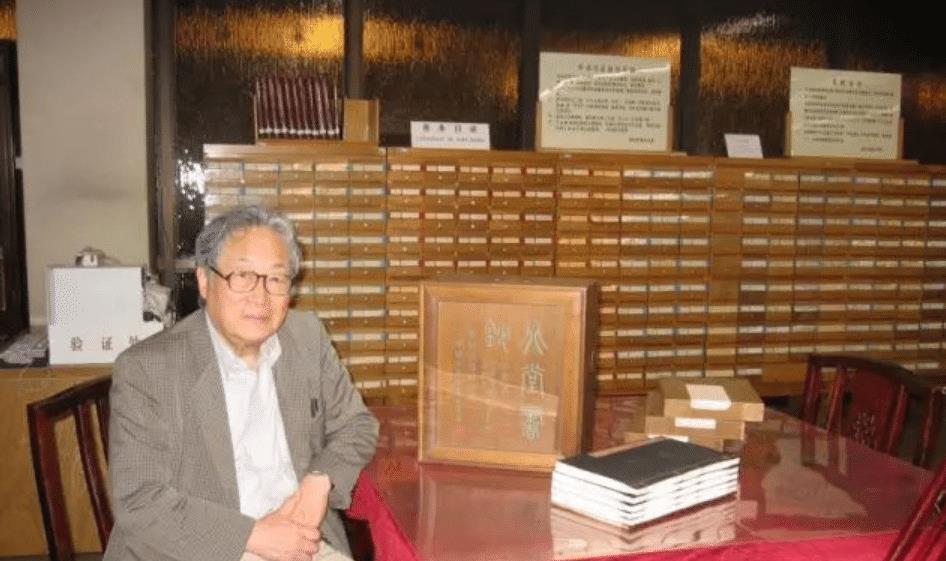"There is nothing in the world to resist the sorrow of spring, and weep and rest in the heavens. Forty million people burst into tears, where is the end of the world is Shenzhou. ”
Tan Sitong wrote these bloody verses in 1896, trying to wake up the rulers of the Qing Dynasty, but failed to wake them up. As a result, the land was invaded by foreigners, and many treasures were scattered outside and disappeared. It's just that China is rich in land, and after all, there are still many treasures that have been preserved in the hands of the people. He was originally the grandson of a qing dynasty official, but he donated 183 cultural relics to the United States free of charge, and the motherland wanted to buy them back but was rejected. What makes him prefer to donate treasures to foreigners rather than place them in the country?

Ongwango
The collector of this treasure was named Weng Wange, and his ancestor was Weng Tonggong, who had served as the emperor of the two dynasties and was a very popular subject. As an important military and political figure in the late Qing Dynasty, Weng Tonggong was not only politically skilled, but also intoxicated with art. He was passionate about collecting precious treasures and artifacts, and Weng Tonggong's home was filled with treasures he had collected. This was a great wealth in the late Qing Dynasty, and it is also a very great historical wealth in the modern era, and Weng Wange, as the heir to these riches, had a huge fortune at a very young age.
Onwango did not include these collections
As
Private property, in the education of his ancestors, these treasures are not treasures in the traditional sense, but the beliefs of their ancestors. Something that has been left from generation to generation and needs to be protected and passed on by them is the soul of the Weng family that has been passed down from generation to generation.
For Ongwango, such an important thing, why didn't he keep it in his own hands?
In fact, Onwango once put a collection at auction. To this day, many people do not know why Weng Wange auctioned it, the collection is called "Yangtze River Wanli Map", this collection is also very high in history, without superb painting skills and the mind to match the Yangtze River, it is difficult to draw such a picture. Weng Wange put it up for auction, and eventually the Shanghai Museum successfully bid at a high price, making it successfully enter the collection of the Shanghai Museum.
Many museums have sought out Weng Wange and wanted to buy the collection in his hand, and the prices offered were various, undeniably, they were all heartwarming high prices, but Weng Wange did not agree to one. Just when everyone thought that Weng Wange would keep these treasures and give them to the descendants of the Weng family to guard these treasures for generations, Weng Wange made a surprising move. He donated all his collections, a total of 183 cultural relics, not for a penny, but not to chinese museums, but to American museums. After knowing this matter, many collectors were very shocked, and even scolded Weng Wange, scolding him for handing over the ancestral relics to people, etc., but Weng Wange did not explain too much reason.
The day of the donation happened to be Ongwango's birthday, and to the insults that many people had scolded him, he said: "Those cultural relics are not just cultural relics for me, but belong to the family collection."
Onwango confessed that he had lived a lifetime for his family, and his family had also fulfilled his life.
He had lived a long time and had truly felt the cruelty of war. He felt that if he wanted to continue to inherit the family collection, it was very important to find a safe place, and after many measurements, he felt that the United States was the safest, and the American museum was also a very good place to go.
Wengwango said that in addition to safety issues, he feels that the technology of restoring cultural relics in Museums in the United States should be more advanced, and it is his lifelong dream to be able to give these cultural relics a good home. He has now donated these cultural relics, and he has also received a promise from the museum that he will restore and preserve these cultural relics well, and Weng Wange feels that his mission has been completed here. Although Onwango donated cultural relics for good reasons, the museums in the United States did not keep their promises, and their protection of the collection was extremely casual, living up to Onwango's sincerity. And Weng Wange also buried the painstaking efforts handed down from his ancestors because he did not know people clearly.
In the final analysis, Ongwango still did not trust the once cowardly motherland and wanted to find stronger protection, which led to this tragedy. Weng Wange still did not achieve "Every big thing has a calm breath, quiet and then can be safe, safe and then can worry, worry and then can get." ”
Conclusion: For Onwango, the family collection is donated to who is his freedom, but from the perspective of a patriot, this kind of behavior of Onwango is not acceptable to patriots. In fact, no matter when, we should trust our motherland, only mutual
target
Only by trusting can we have the opportunity to work together towards a new future. A country's prosperity requires not only people's efforts, but also people's trust.
Resources:
"No Sense"
"Vegetable Root Tan"